The Garden: Volume Eight
Uniquely Connected & Thriving Together at Dietrich College
In This Issue: Student Spotlight - Mya Bowdry Ι Insiders' View on Amber Thompson's de-Bias Workshop Ι Faculty Spotlight: Mariam Wassif Ι 2023-2024 Events
A Message from Richard Scheines
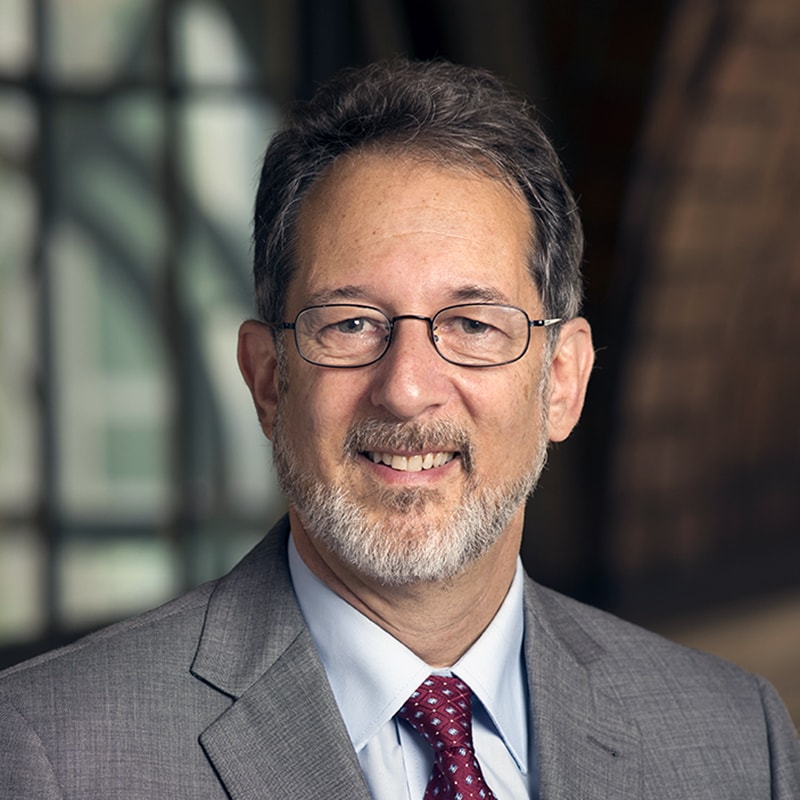 Dear Dietrich Students, Faculty and Staff,
Dear Dietrich Students, Faculty and Staff,
Welcome to the Dietrich College of Humanities and Social Sciences! Whether you are joining us for the first time or returning for a new academic year, I am grateful that you chose to be a part of this community. In his June 29 message to the campus community, Carnegie Mellon University President Farnam Jahanian wrote "a diverse class of scholars encourages students to question their own assumptions, test perceive truths and appreciate the complexity of the modern world." I couldn't agree more. Moving forward, let's do all of these things, but do them in an inclusive and welcoming environment at Dietrich College that values and respects all community members.
I encourage you to explore our Dietrich College events calendar to discover a wide range of programs and academic initiatives that foster community growth, provide opportunities to test our own assumptions and expand our understanding of the complexity of the world, and help us to build an inclusive and welcoming culture. Thank you for being a part of our community and for your commitment to helping us achieve our shared goals.
Best,
Richard Scheines
Bess Family Dean, Dietrich College of Humanities and Social Sciences
Student Spotlight: Mya Bowdry
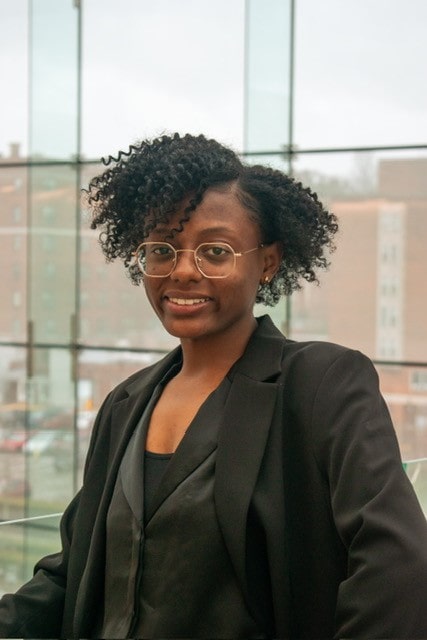 Mya Bowdry (she/her), class of 2023, studied Business Administration with a concentration in Leadership and Organizational Effectiveness during her time at Carnegie Mellon University. Mya has a unique background that highlights significant experiences in both the Tepper School of Business and the Dietrich College of Humanities and Social Sciences. After transferring the fall semester of 2020 from community college in Chicago, Mya made strides to encourage equity throughout her time at Carnegie Mellon.
Mya Bowdry (she/her), class of 2023, studied Business Administration with a concentration in Leadership and Organizational Effectiveness during her time at Carnegie Mellon University. Mya has a unique background that highlights significant experiences in both the Tepper School of Business and the Dietrich College of Humanities and Social Sciences. After transferring the fall semester of 2020 from community college in Chicago, Mya made strides to encourage equity throughout her time at Carnegie Mellon.
Mya’s academic work centers around equity and inclusion efforts, primarily through classes like Organizational Behavior, Managing Across Cultures taught by Oliver Hahl, associate professor at Tepper. This class especially was one of multiple that was valuable for her journey. Why? The main reason was that they were people-oriented classes, prioritizing network nodes as a valuable way that people transfer knowledge, especially for a company. As a business administration student, such skills were vital to helping her understand management better, as well as gain exposure in the field. For instance, she has worked as a Tepper Community Lead these past two summers in the first institutionally-led pilot program that connected new transfer students with more experienced transfer students. Bridging these types of people-oriented gaps was and is a key takeaway for Mya’s work.
People-oriented work was an overlap that bolstered her experiences in Dietrich College as well. During her final semesters, Mya worked for Dietrich’s Academic Advisory Center (AAC), where she had the chance to share a student perspective on the new directors under Dietrich’s Advisor Hiring Committee. Another notable example of this was her participation in experiential learning with Kimberly Piatt, director of Experiential Learning, and Korryn Mozisek, a lecturer for Dietrich College, during summer 2022. She was part of the first trial period for a course called Research with Impact: Engaging a Community Partner Ethically and Responsibly. Here, she worked with Footbridge for Families, an organization centered on providing emergency assistance for families in need via referral services. By creating marketing deliverables and helping the organization implement various recommendations for case management, Mya was part of a movement to bridge the gap often left in nonprofit work between having various recommendations but few implementation methods. Through her work and that of others, Footbridge for Families remains a valuable nonprofit for families and people in need.
Mya also took part in the Washington Semester Program in fall 2022, interning for the Center for American Progress. Through her work in HR at the Center for American Progress, Mya further recognized the value of different perspectives. She said this involved digging deeper, “not [focusing] on gaining the right answer but more on the creative process and generating more creative questions.” Brainstorming evolved to be a more active process, where one changes how they think in relation to a team’s dynamics. Alongside taking classes required for the Politics and Public Policy minor, Mya’s expansions on thinking also translated to her writing. For instance, she was exposed to readability needs for specific audiences under Bill Marcellino, a lecturer at the Carnegie Mellon Institute for Security and Technology (CMIST). This was applicable in her own writing: whether it be business communications or academic writing, structuring ideas even in headings became a more valuable skill that Mya is now better exposed to.
Identifying accessible communication is a major part of Mya’s work. However, in her experience, access for diverse audiences is still a priority that needs to be addressed at CMU. Mya believes that the channels she was involved in, while important, still have noticeable systemic issues that surround accessibility to this day. For instance, the fact that these experiences came through separate, not integrated, programs makes it more challenging to build faculty and student involvement. Mya argues that these should be integrated ideas and opportunities in a student’s curriculum, so there can be better awareness and thereby better communication.
Efforts for equitable interactions are built on effective communication, and post-graduation, Mya’s plans connect her communication skills on an individual level. She is interested in working in HR and encouraging employee rights. By working more closely with individual employees, Mya hopes to better advocate for employees getting buy-in from corporations while also having employee values in mind.
Insiders' View on Amber Thompson's de-Bias Workshop
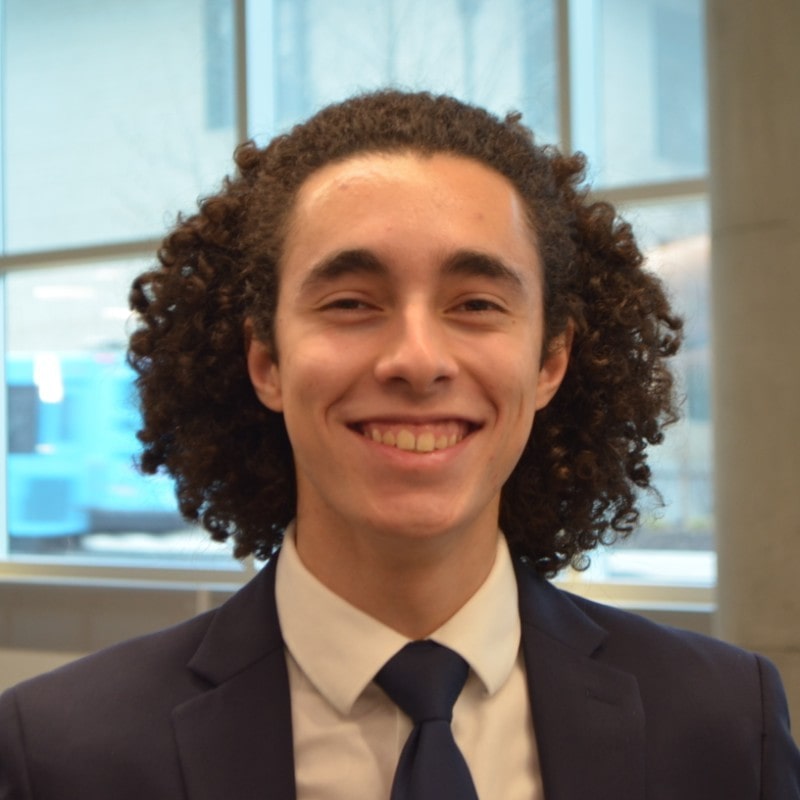 Neville Carceras
Neville Carceras
Neville Caceres (he/him), an undergraduate student studying Decision Science, took part in Amber Thompson’s (she/her) de-bias workshop at the end of March 2023. De-bias as a framework is a data-centric community hub dedicated to evaluating legislative policies by using metrics on distributing resources fairly and having equitable procedures. Neville was one of multiple students involved, and his experience highlights the importance of Thompson’s work and its applicability to the Carnegie Mellon University student community.
Neville’s background played a major role in his involvement with this workshop. As a multi-racial Caribbean LatinX individual from Miami, Neville has had a personal relationship with equity and race discussions for much of his life. His mother was born in Miami and is of Cuban heritage while his father was born in Puerto Rico. Growing up, Neville says his unique identity shaped his community interactions to support equity and inclusion efforts.
He heard about Thompson’s workshop from a friend in Spirit, a student organization that unites diverse ethnic backgrounds as a haven for Black students and their allies at CMU. Considering the topic, he said that this was a perfect way to, “One, get more insight to how people make change in these fields and two, what is out there in a decision science career.”
The content of the workshops, even from the introductions, was very relatable for Neville’s line of work. Thompson’s frameworks delved deeper into biases within foundations of data processing, and even her stance as “not a DEI person but an equity person” was valuable to understanding intentions, including one’s own. One key takeaway from this point was that transparency is always key, even when collecting data. For instance, Thompson says, collecting data from the foundations of the venture capital index are admittedly problematic because VC-backed companies measured through the index further perpetuate systemic class differences that are historically rooted in market exclusivity.
After identifying key transparency issues, the workshop itself applied these and other ideas across three case scenarios: company hiring practices, a medical facility’s decision on long-term COVID patients, and a banking decision. The scenario that Neville’s group was in focused on was a company approach to better hiring practices. Across each group, they were asked to think through how they would collect data, which biases currently exist, what could be proposed on issues they aren’t addressing, and whether they think the initial proposal would change the observed question. Neville’s group brainstormed racial discrimination practices within hiring processes, including systems’ automatic filtering for names/disability/address location and other forms of preferential treatment between applications. They considered collecting who is getting hired or who gets an interview, collecting individual sections for separate language learning and adding predictive measures for who is not applying. These data collection methods were all addressing influences on discrimination within the job board, and the workshop afterwards analyzed these proposals in relation to effective and transparent data collection.
Looking back, for Neville this workshop was an incredibly valuable experience. This was one of the first times during his experience at CMU that a professional applied and specified inclusive methods of data collection. Furthermore, the activity also served as one of the few ways of seeing how people sit and brainstorm making change. Neville feels that being able to break down barriers through analyzing case scenarios is invaluable for equity-based change. Before this, it seemed like a larger challenge to break down barriers and address equity efforts.
From this experience too, the value of social justice was further solidified for Neville. In fact, part of the reason that he studies decision science is that he feels that social justice is not really possible in his previous major. In the future, Neville hopes to apply his interest in social change to highlight areas of importance in equity-efforts across organizations.
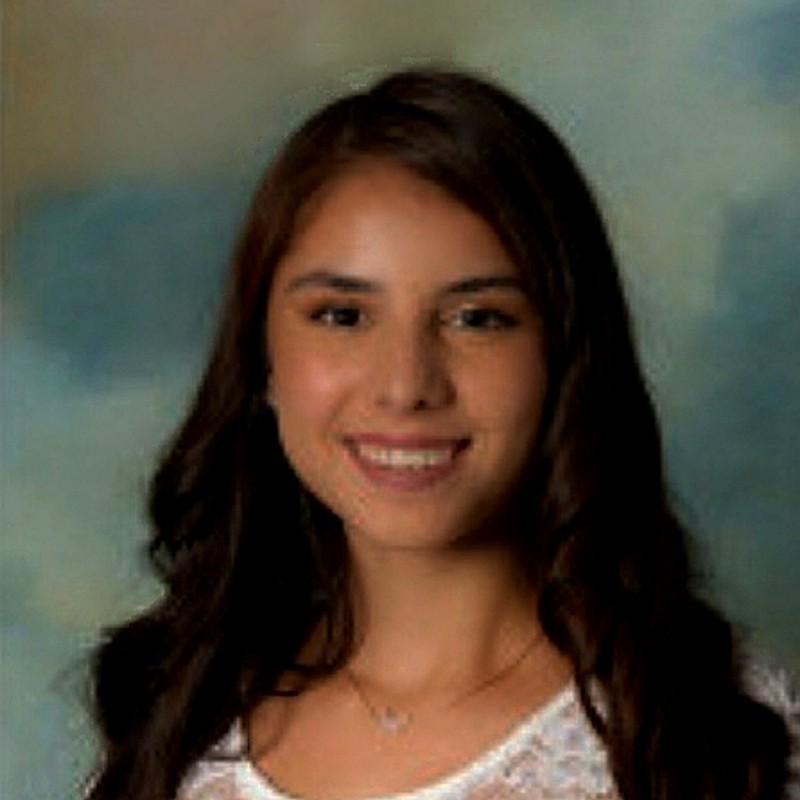 Sasha Kroman
Sasha Kroman
Sasha Kroman (she/her) is a Carnegie Mellon University junior studying Mechanical Engineering and Robotics. She came to the school with an associate’s degree and plans to pursue graduate school after graduation. For quite some time, she said, she’s hoped to work for a company that “specializes in robotic systems (whether that be medical, educational, etc.),” so being involved in the de-bias workshop lined up with her interests.
Sasha first heard about this workshop through the DEI lecture credit that is required for Mechanical Engineering students. The workshop itself sounded interesting and like something that she could relate to, as one of the biggest challenges she identified within the CMU community was how to get more people involved in diversity events and what that would look like. During the workshop, she personally was able to bring up issues she had with previous events.
Overall, Sasha finds that CMU does a good job on cultural awareness “especially the diversity clubs as part of CMU.” Considering that CMU does also take DEI violations and accusations seriously, it was reassuring for Sasha to know that “should the need arise, I have the option to inform someone about DEI issues.” Being in the Society of Women Engineers and Society of Hispanic Professional Engineers, Sasha has found that her classes and such clubs are quite diverse, so she hasn’t noted any personal experiences or issues of discrimination. In fact, when asked about culture and campus life, she said, “I was lucky enough to be placed in a dorm last year where everyone was very close, and that was quite reassuring. I also work for several groups where I feel accepted and I always feel excited about attending their events.”
The positive outlook she shares is encouraging, and in relation to her experience at the workshop, it makes sense that she has found communities that share her own passions and encourage her motivations, academically and socially. However, she does note some improvements that could be made, namely making events more inviting for students among certain communities. For instance, she noted that for more localized events under the College of Engineering or DEI, she wouldn’t necessarily attend unless she found someone she could go with, as she does not want to feel uncomfortable. Encouraging inclusion alongside friends and smaller groups creates better cohesion, and that in turn can build more participation in DEI efforts within the CMU community.
Faculty Spotlight: Mariam Wassif
by Stacy Kish
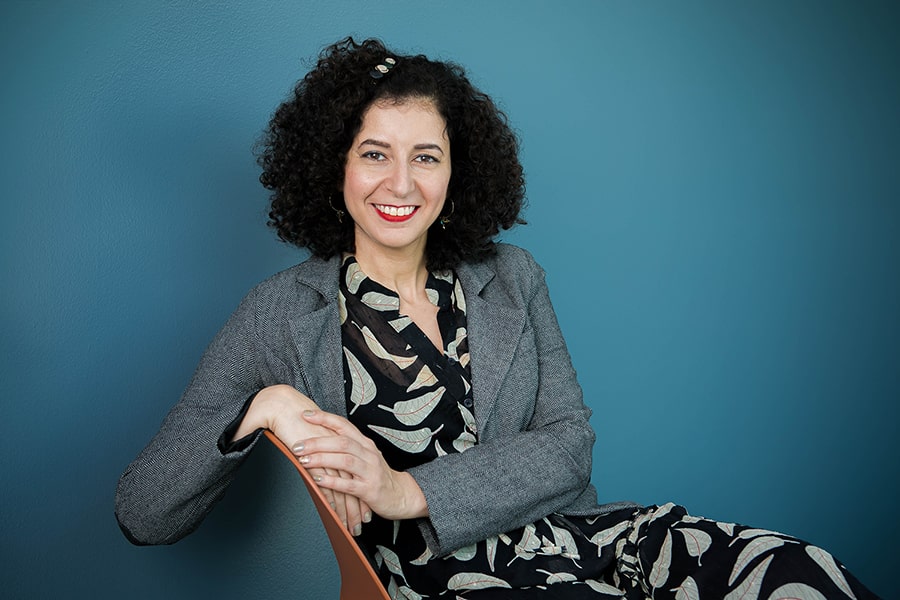 Mariam Wassif, assistant professor of English, has focused her scholarly work on rhetoric, race and material culture in the long 18th century. She focuses on the relationship between literary style and material culture in an era of advancing capitalism and global unrest.
Mariam Wassif, assistant professor of English, has focused her scholarly work on rhetoric, race and material culture in the long 18th century. She focuses on the relationship between literary style and material culture in an era of advancing capitalism and global unrest.
2023-2024 Events
DEI Open House
Tuesday, Sept. 12, 2023, 4:30 to 6:30 p.m., Posner Grand Room (Posner 340)
Explore ways to participate in our partnerships with the Pittsburgh community and discover initiatives undertaken by the Center for Shared Prosperity, Prison Education Project, LEAP, Arts Greenhouse and the Community Engagement Fellowship Program.
Connections and Conversations Luncheon: Staff Community Excellence Award
Wednesday, Sept. 27, 2023, 12 to 1:30 p.m., CUC Peter-Wright-McKenna Rooms
Faculty and staff are invited to join us for the fall 2023 Connections and Conversation Luncheon. We will announce the winner of the 2023 Staff Community Excellence Award, which recognizes individuals for contributions to increasing diversity, equity, inclusion and belonging both within and outside the university.
Faculty Development Workshop: Centering Diversity, Equity, Inclusion and Belonging (DEIB) in Teaching
Tuesday, Oct. 24, 2023, 12 to 1 p.m., Posner Grand Room (Posner 340)
Learn from Colleagues at the Eberly Center about concrete strategies and examples of how to intentionally enhance DEIB in your teaching
Restorative Reflections
Wednesday, Oct. 25, 2023, 5 to 6 p.m., Posner Grand Room (Posner 340)
Come join your fellow community members for a lovely light dinner filled with engaging conversation. We'll be discussing both local and global social challenges and opportunities. This is a wonderful opportunity for you to learn, listen and collaborate with others to address these important issues.
Faculty Panel: Incorporating Diversity, Equity, Inclusion and Belonging (DEIB) Strategies
Tuesday, Nov. 14, 2023, 12 to 1:30 p.m., Posner Grand Room (Posner 340)
Hear how the Provost's Inclusive Teaching Fellows approach promoting DEIB strategies into their work.
Faculty Development Workshop: Creating an Inclusive Syllabus
Tuesday, Jan. 23, 2024, 12 to 1 p.m., Posner Grand Room (Posner 340)
Learn from colleagues at the Eberly Center about how to use the syllabus as a starting point to create an inclusive and supportive environment.
Ink and Insights: A Book Discussion
Tuesday, Feb. 6, 2024, 3 to 4 p.m., Posner Grand Room (Posner 340)
Dietrich College staff members are invited to a lively discussion of Racism not Race: Answers to Frequently Asked Questions. Copies of the book are available. Please make sure to sign up by Dec. 12, 2023. We kindly ask that you only register if you're able to attend the conversation.
Restorative Reflections
Wednesday, March 13, 5 to 6 p.m., Posner Grand Room (Posner 340)
Come join your fellow community members for a lovely light dinner filled with engaging conversation. We'll be discussing both local and global social challenges and opportunities. This is a wonderful opportunity for you to learn, listen and collaborate with others to address these important issues.
Faculty Development Workshop: The Art of Negotiation
Tuesday, March 19, 5 to 6 p.m., Posner Grand Room (Posner 340)
No matter your role or experience level, learning how to negotiate is an essential leadership skill to apply in every aspect of your life. Register to attend this presentation, and you will be able to recoginze the barriers to making the ask, start to create your negotiation plan, and discover your bargaining power.
Understanding Your Role in Creating a LGBTQIA2S+ Supportive Work Environment
Tuesday, April 16, 12 to 1 p.m., Posner Grand Room (Posner 340)
Dietrich staff are invited to join a discussion about how to create a supportive culture and climate for all members of our community and spread that knowledge to others.
Connections and Conversations Luncheon: Applying Cultural Humility
Tuesday, May 7, 12 to 1 p.m., Posner Grand Room (Posner 340)
Everyone can benefit from practicing cultural humility. But what exactly is it, and why is it important? Join us for a lunch to discuss this topic and how doing so can increase our sense of belonging, improve collaboration, communication and much more. We recommend (but do not require) completing the virtual session: "Cultural Humility: Framework to Mitigate Bias" prior to participating this luncheon. You can find it in the Better Together Learning Academy.